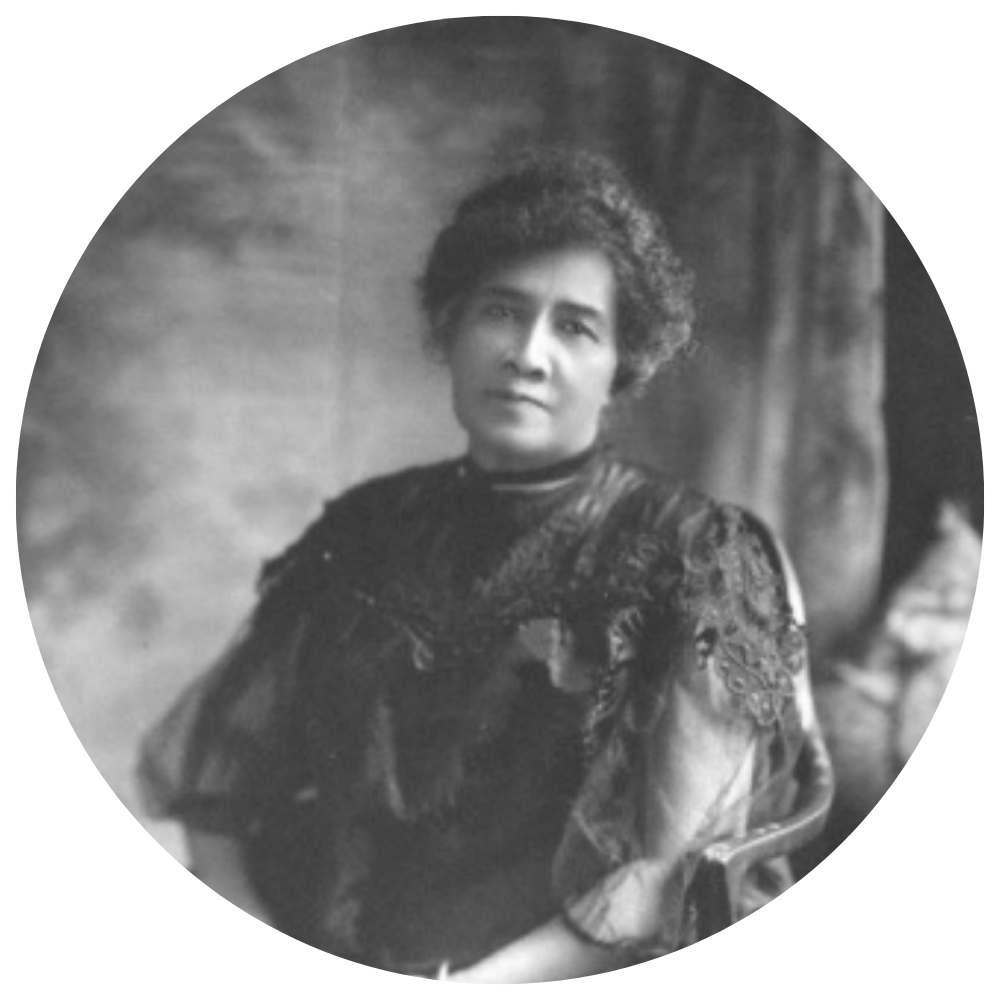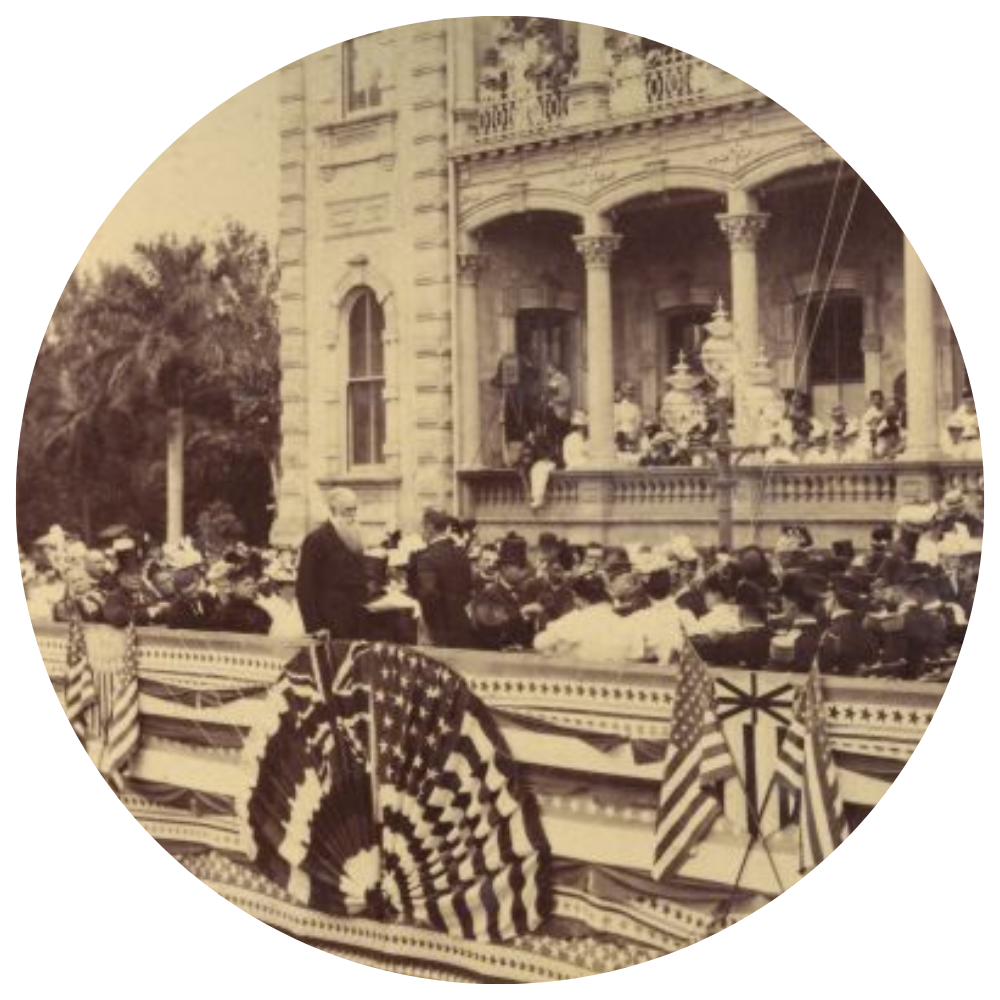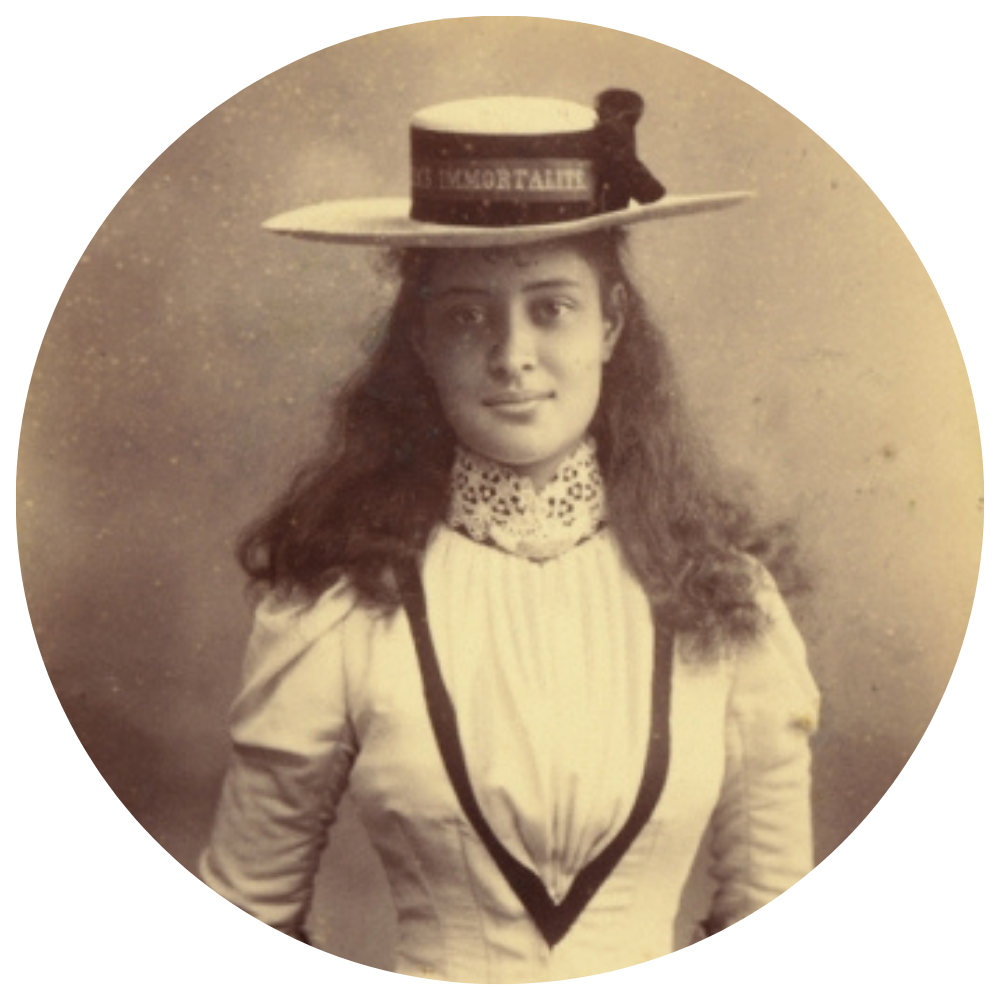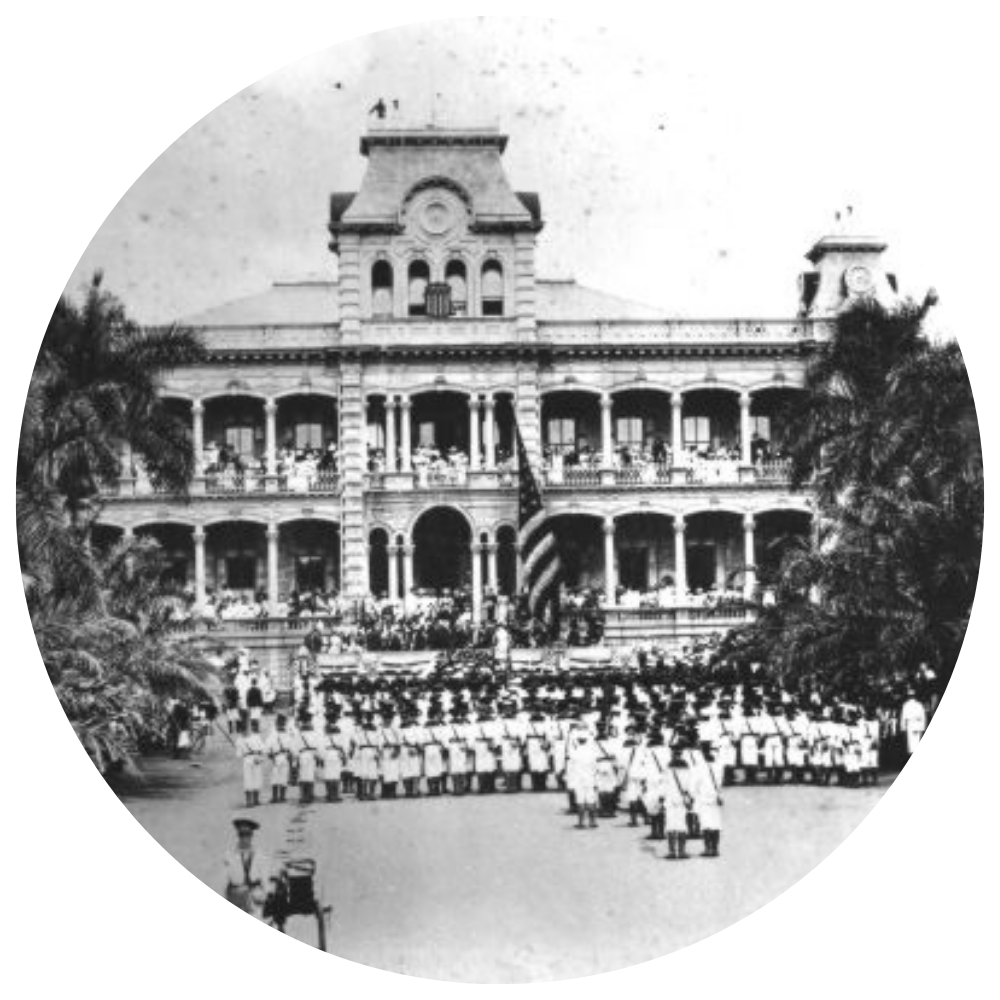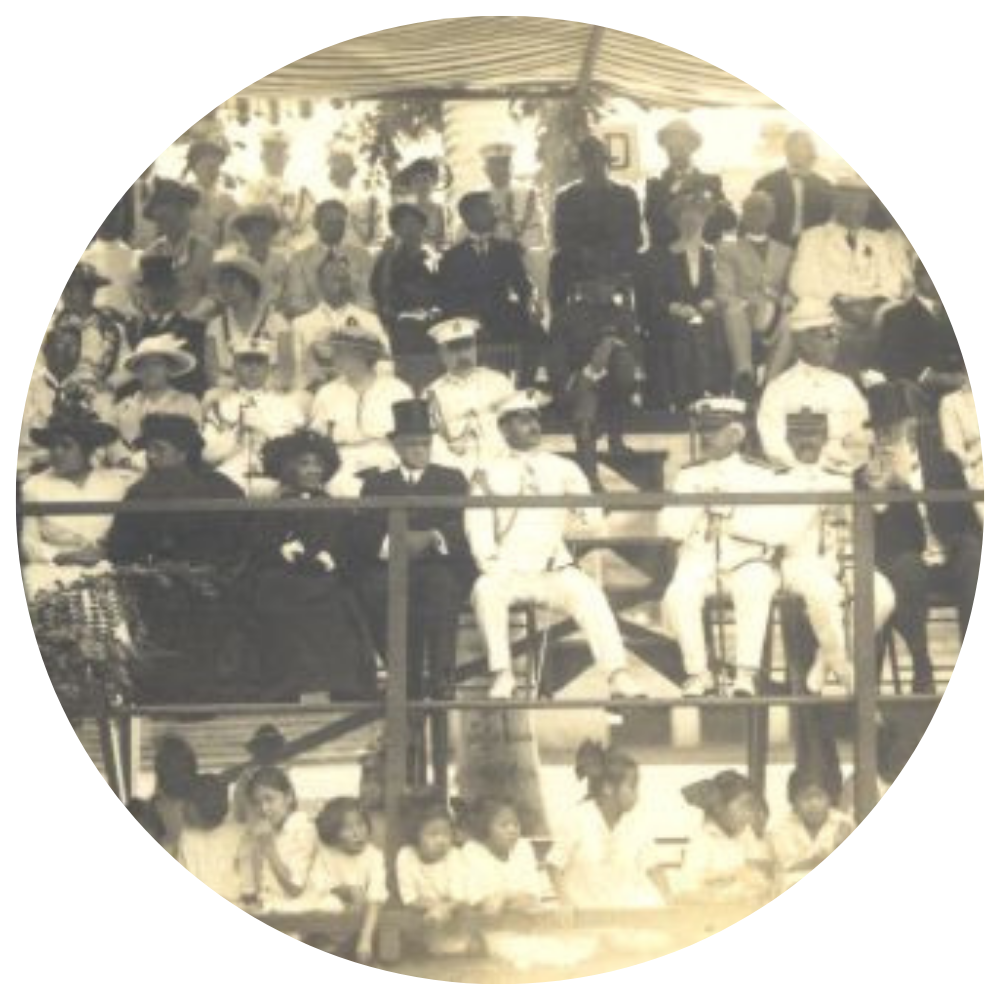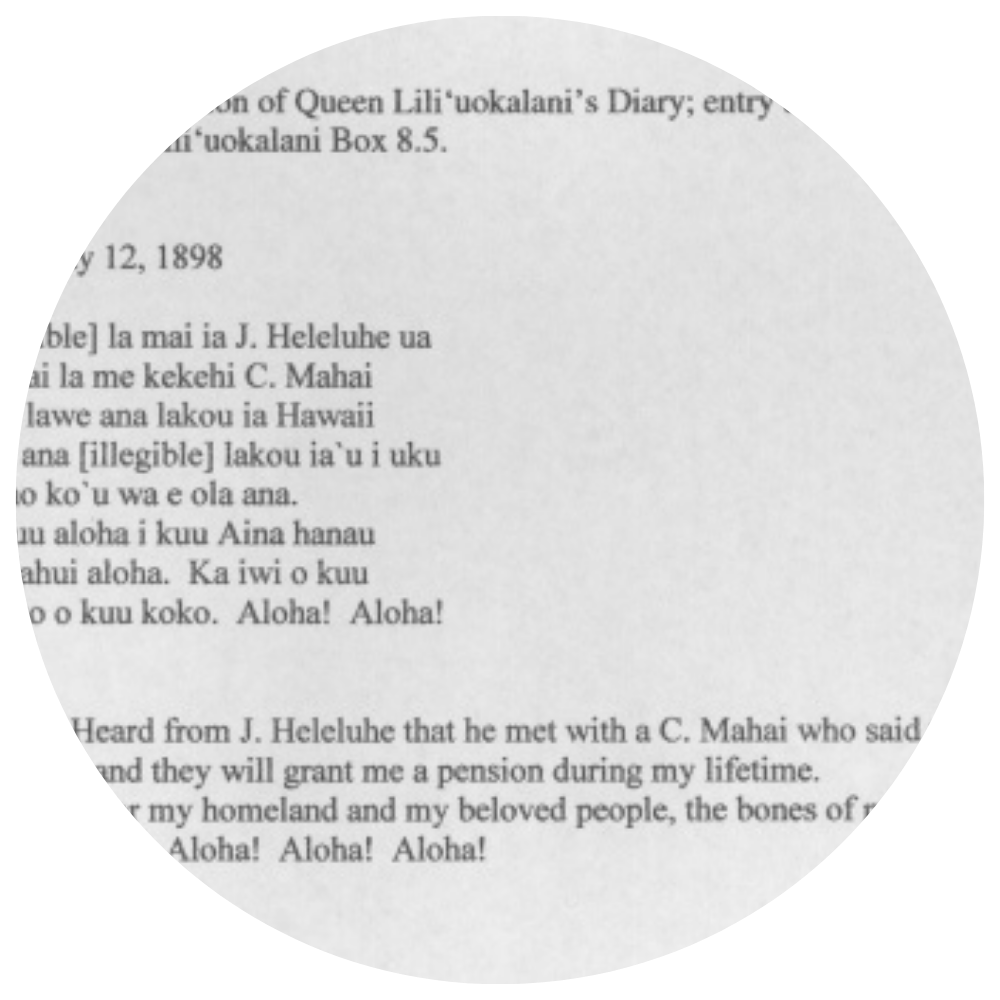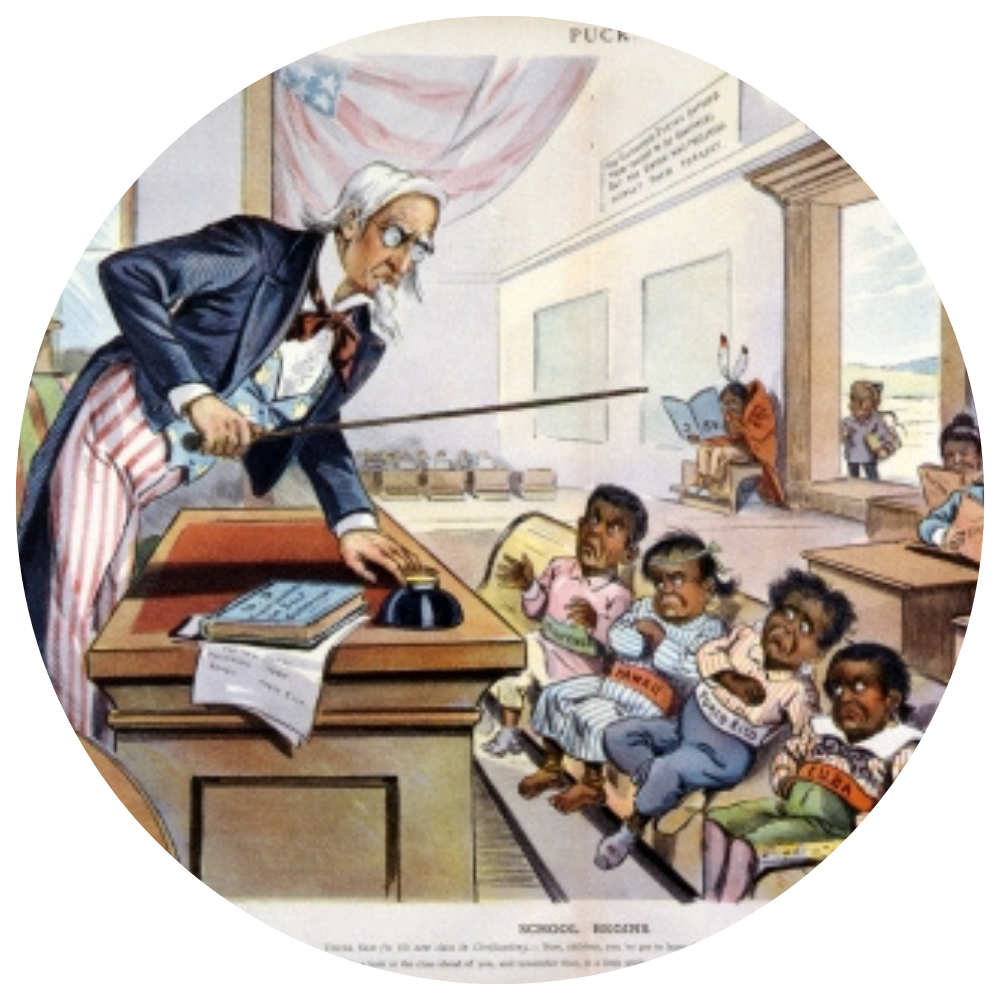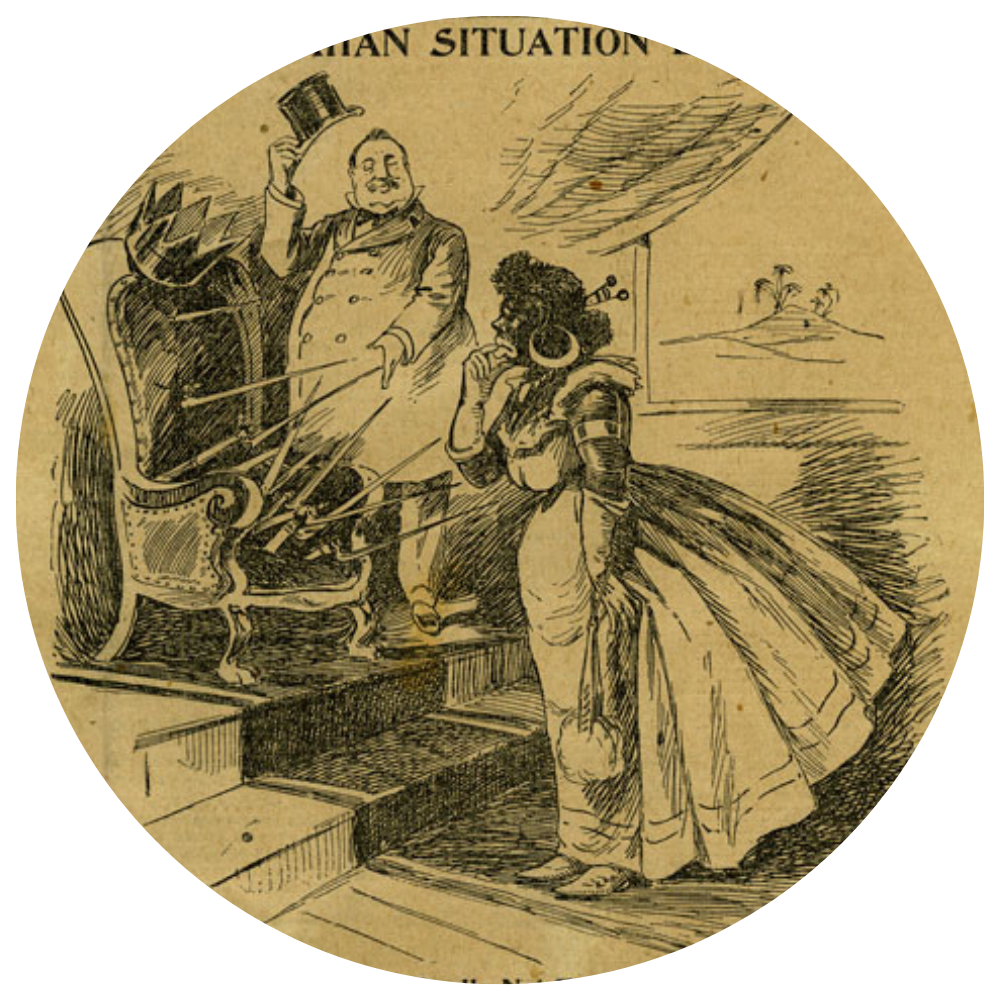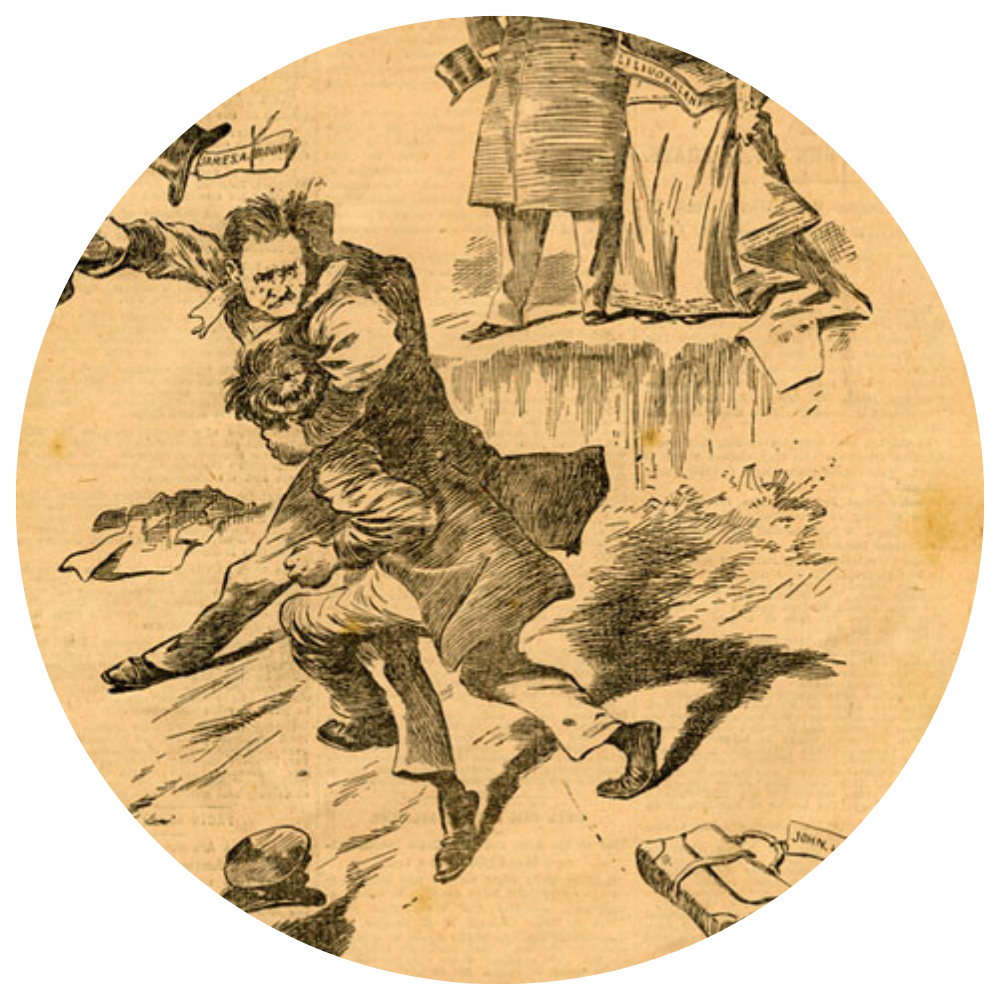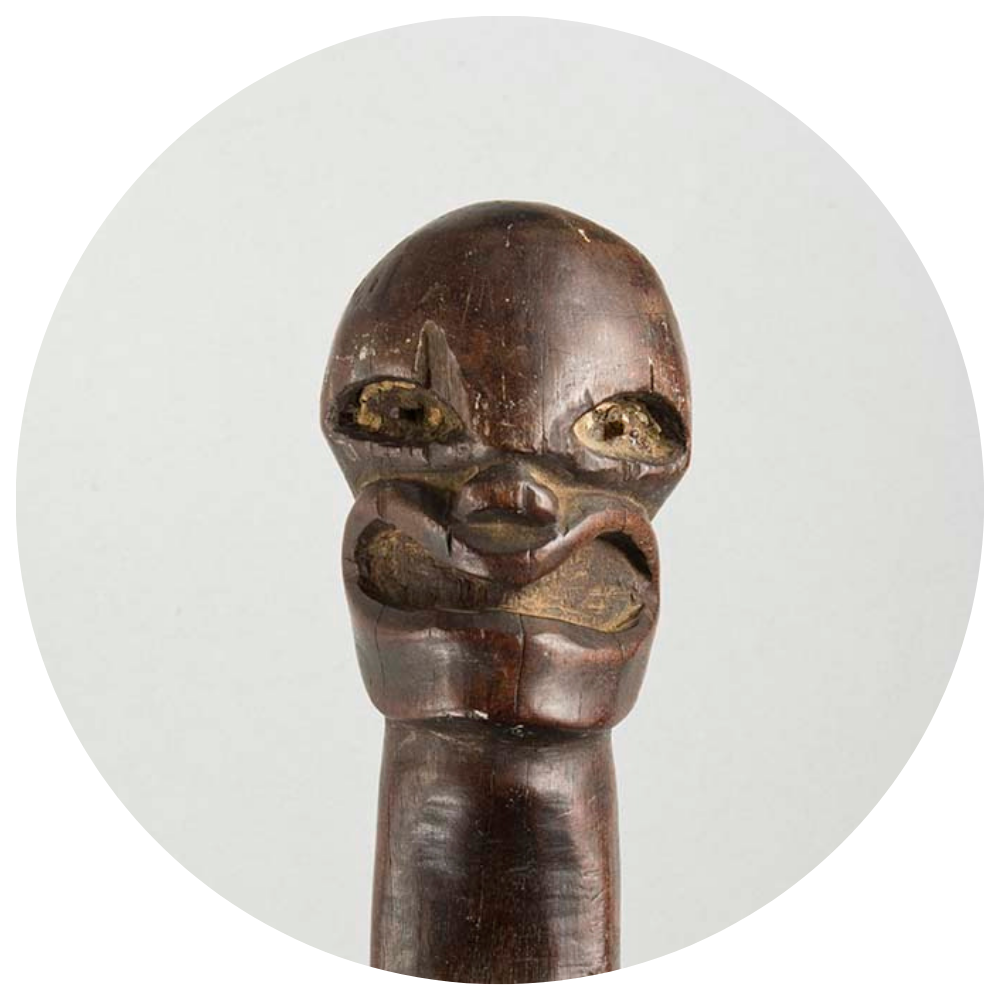1898 Diary of Queen Liliʻuokalani

On January 14, 1893, Queen Lili‘uokalani sought to promulgate a new constitution reinstating the rights of the Mō‘ī (sovereign) and the kānaka (people) that had been stripped by the 1887 Bayonet Constitution. In response, a small group of white, mostly American men set in motion their planned attempt to overthrow the Hawaiian government. This “Committee of Safety” had been in frequent conversation with the American administration in the months prior, securing support for the annexation of Hawai‘i once it was wrestled away from Native hands. When certain members of her cabinet reneged on their earlier support for her idea, Lili‘uokalani stayed the proclamation of the Constitution. Nonetheless, by request of U.S. Minister John L. Stevens, American marines were landed in Honolulu to support a Coup d’État against the Queen. On January 17, 1893, Henry E. Cooper proclaimed that the Provisional Government was now the legal government of the Hawaiian Islands. Stevens recognized the authority of this new government immediately. Fearing bloodshed and knowing the Coup’s participants were acting without consent of the U.S. Congress or President, Lili‘uokalani yielded her authority to the United States until such time that the injustices done to herself and her nation could be corrected.
When U.S. President Grover Cleveland was inaugurated into office months later, he investigated the overthrow of the Hawaiian government, stalling annexation efforts. In December 1893, Cleveland referred to the invasion of Hawai‘i by U.S. marines as “an act of war” and denounced the taking of lands without the consent of the people. The Provisional Government and its supporters had admitted that in a vote of the people, they would lose. Hawaiians led by Robert Wilcox attempted a counter-revolt, and Lili‘uokalani, as well as several others, were imprisoned for treason in 1895. During her imprisonment, the Queen continued to keep a diary and penned many of her most famous compositions, including the haunting Queen’s Prayer.
With the outbreak of the Spanish-American War, a new push for the annexation of Hawai‘i created a vote in the U.S. Congress. This treaty failed to achieve the two-thirds majority vote needed to pass in the Senate. This was due in part to efforts by the Queen, her heir, Ka‘iulani, as well as Hawaiian subjects. Hui Aloha ‘Āina (Hawaiian Patriotic League) held meetings on several islands and petitions urging the U.S. Congress to reject annexation were signed by 21,000 people. After the failure of annexation, a joint resolution, requiring only a simple majority of the House and Senate, was later submitted to Congress with success. Although under American law this resolution was not enough to assume legal control over a territory, it did not stop McKinley or Dole. On the steps of ‘Iolani Palace, the United States claimed authority over Hawai‘i, raising the American flag. Loyal Hawaiian subjects wailed and cried that they were losing their country. In the following years, Dole and others would continue to promote the myth of annexation. Lili‘uokalani would continue her protests until her death in 1917, making frequent visits to Washington, D.C. and attempting to rally international support for the recognition of Hawaiian claims of sovereignty. Her book, “Hawaii’s Story by Hawaii’s Queen,” perhaps based in part on her diary entries, detailed the illegal overthrow of her nation. Her protests are carried on today by Kānaka Maoli, Hawaiian subjects, and their supporters, seeking redress for the injustices perpetrated by America.
Location: Bishop Museum Archives
Collection: Monarchy Collection
Call Number: MS MC Lili‘uokalani Box 8
Artifact Number: SP 201067
Audio
Nū Oli
Queen’s Prayer performed by the Bishop Memorial Singers


